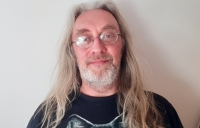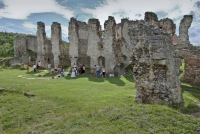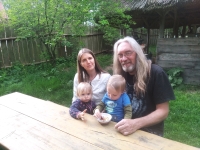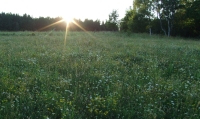We strive for self-sufficient farming
Download image
Zbyněk Vlk was born on May 12, 1972 in Česká Lípa into a family that has its roots in the Sudetenland and his father’s family branch dates back to 1251. His grandparents came to Dolní Poustevna on the border with the former GDR after the displacement of the original inhabitants to rebuild a school famous for the production of artificial flowers as teachers. The family on his mother’s side belonged to the so-called Czech Germans in Nový Bor region, whose closest male relatives were killed on the Eastern Front during World War II. Zbyněk was interested in local history since childhood, helping his grandfather to search the archives, but also taking care of the farm with his parents. As a student at the Liberec grammar school, he became chairman of the student strike committee in November 1989. His interest in the landscape and its ecological use, as well as in the life of the people in it, naturally led him to study at the Faculty of Forestry at Mendel University in Brno. He completed the last two years of his studies through distance learning. As a forester at the Administration of the Jizera Mountains Protected Landscape Area, he sought to change the approach to forest use. He wrote a number of ecological projects, initiated petitions and after moving to a farm in Jindřichovice pod Smrkem he became intensively interested in the possibility of self-sufficient management. Over time, with the help of neighbours, he renovated and built the open-air museum where the family lives - hence the name Living Open Air Museum - and after a few more years he opened the Ronja Free School. About 40 children from near and far learn here. The principle of this informal school is the intrinsic motivation and interest of the children. It uses its own and local resources to run the school, inspired in its approach to the concept of education by the British Summerhill School.




